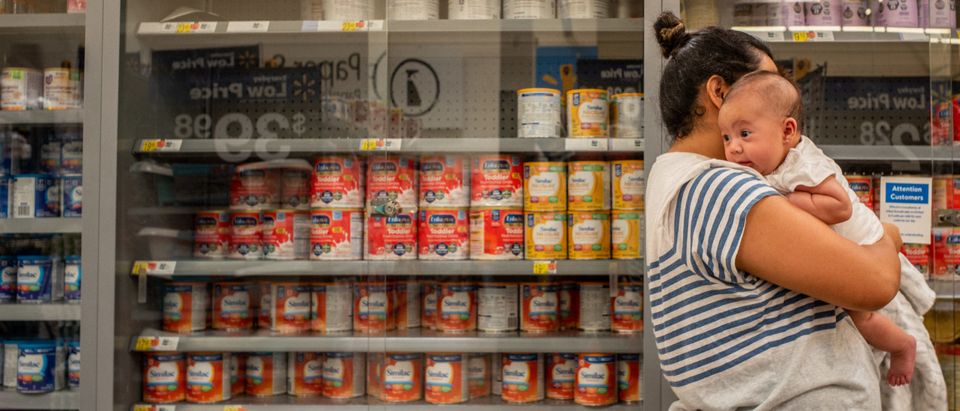The nationwide baby formula shortage may have faded from the news in recent months, but millions of Americans are still feeling its effects.
About one-third of households with infants struggled to get formula in the past month, according to the Census Bureau’s Household Pulse Survey conducted in mid-September. Close to 20% of households had less than one week’s worth of formula available at the time of the survey.
I can personally confirm that the struggle is still very real. Awful and shameful that this is still the case- and that it isn’t getting more attention.
And btw Abbott ~just~ issued another recall for some similac products https://t.co/cOhW7E2Sm8
— Morgan Brennan (@MorganLBrennan) October 18, 2022
The shortage disproportionately impacted poor and working-class families. Households with an income of under $75,000 were twice as likely to report troubles finding formula than those making above $75,000. About 18% of powdered formula was out of stock in September, down from a high of 30% in July, according to market research firm IRI.
IRI reported that typical out-of-stock rates for food sit around 5% and that anything exceeding 10% is problematic, according to The Wall Street Journal. Out-of-stock rates were already increasing over the course of the pandemic, before surging further in the past year during the nationwide shortage.
Trouble began in Oct. 2021, when a whistleblower sent a report to the Food and Drug Administration (FDA) alleging unsafe and unsanitary working conditions at a Sturgis, Michigan, plant owned by Abbott Laboratories, one of America’s biggest formula manufacturers. (RELATED: The Media May Have Moved On, But Biden’s Baby Formula Shortage Is Still Wreaking Havoc On Americans)
The FDA did not alert its top food safety official about the whistleblower report for four months and did not initiate a voluntary shutdown of the plant until Feb. 2022. The Biden administration took numerous steps to alleviate the shortage, including shipping formula into the country from overseas, but with little effect.
Abbott has since re-started production at its plant, but out-of-stock levels remain high. Last month, the FDA completed a review of its work during the shortage, deflecting much of the blame onto Abbott while admitting it made some mistakes. Last week, Abbott issued a new recall for several formulas, though the company said it doesn’t expect the recall to further exacerbate existing shortages.


